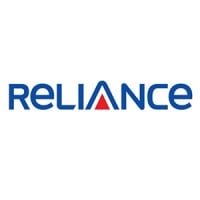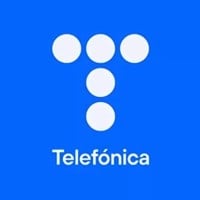Company Cyber Security Posture
NANA
NA Company Details
NA
NA
NA
NA
NA
NA
Scan still pending
NA
NA
Between 200 and 800
This score is AI-generated and less favored by cyber insurers, who prefer the TPRM score.
 NA Global Score
NA Global Score.png)

Company Scoring based on AI Models
| Model Name | Date | Description | Current Score Difference | Score |
|---|---|---|---|---|
| AVERAGE-Industry | 03-12-2025 | This score represents the average cybersecurity rating of companies already scanned within the same industry. It provides a benchmark to compare an individual company's security posture against its industry peers. | N/A | Between 200 and 800 |
Company Cyber Security News & History
| Entity | Type | Severity | Impact | Seen | Url ID | Details | View |
|---|
Company Subsidiaries

NA
Access Data Using Our API

Get company history
.png)
NA Cyber Security News
Tense cyber situation: Telekom expands protection center
Current crises and wars aggravate the cyber situation in Germany. Precisely because more and more attacks are being generated, improved and ...
AI Data Centres to be Built by Deutsche Telekom & SAP
A consortium of German companies, including Deutsche Telekom, SAP and Ionos, are taking a significant step in advancing Europe's AI ...
Deutsche Telekom Security Dashboard Shows Cyber-Attacks in Real Time
Deutsche Telekom has launched a website that reports attacks on honeypot systems in real time.
DT ‘nears’ €300m sales watershed for security spinout
Group's Chief Executive says distinct security business is set to hit a revenue milestone as it ramps up commercial ambitions.
Telekom Security: Tricks and pitfalls of artificial intelligence
Deutsche Telekom identifies vulnerabilities and technical details in company IT before attackers exploit them. The service is based on the ...
Deutsche Telekom Bolsters Cyber Defence with AI App Security
Share. Share. "The security of mobile workplaces doesn't allow for a break,” asserts Klaus Werner, Managing Director of Deutsche Telekom ...
Deutsche Telekom & Qunnect Sustain 99% Quantum Fidelity
Deutsche Telekom Innovation Laboratories (T-Labs), in collaboration with quantum networking hardware developer Qunnect, has marked a critical ...
Chinese Salt Typhoon Hacked T-Mobile in US Telecom Breach Spree
Another day, another hack at T-Mobile! This time, Chinese state-sponsored group Salt Typhoon hacked T-Mobile, targeting US telecoms in a ...
T-Mobile Gets SASE with Palo Alto Networks Prisma Security
T-Mobile Gets SASE with Palo Alto Networks Prisma Security · 1 · 2 · 3 · 4 · 5. (1 Vote). 2.7 min read; font size decrease font size decrease font ...

NA Similar Companies

Spanco
Spanco has been an active player in this space for over a decade and today ranks amongst the best in India. We have a presence across India and provide high quality, cost effective scalable Technology Infra solutions.Spanco has dedicated teams addressing opportunities in e-Governance, PSU, Defence,

Telkom Business
Telkom Business is the business unit dedicated to serving businesses of every type, industry and size in and outside South Africa. The businesses that we serve range from small and medium enterprises (SMEs) to large corporations, government organisations and global enterprises. A sub-brand of the

Vivo (Telefônica Brasil)
Vivo (Telefônica Brasil) is part of the Telefónica Group and with more than 94 million customers, of which 75 million mobile and 19 million fixed, we are the largest telecommunications company in Brazil, with nationwide presence and a complete, convergent portfolio of products, combining fixed, mobi

Reliance Communications
Reliance Communications Limited, founded by the late Shri Dhirubhai H Ambani (1932-2002), has Corporate clientele that includes 40,000 Indian and multinational corporations, including small and medium enterprises. Reliance Communications has established a pan-India, Next-Generation, digital network

MTNL
MTNL was set up on 1st April, 1986 by the Government of India to upgrade the quality of telecom services, expand the telecom network, introduce new services and to raise revenue for telecom development needs of India's key metros . Delhi, the political capital and Mumbai, the business capital of Ind

Telefónica
Telefónica is today one of the largest telecommunications companies in the world in terms of market capitalisation and number of customers. We have the best infrastructure, as well as an innovative range of digital and data services; therefore, we are favorably positioned to meet the needs of our cu

Frequently Asked Questions
Explore insights on cybersecurity incidents, risk posture, and Rankiteo's assessments.
NA CyberSecurity History Information
How many cyber incidents has NA faced?
Total Incidents: According to Rankiteo, NA has faced 0 incidents in the past.
What types of cybersecurity incidents have occurred at NA?
Incident Types: The types of cybersecurity incidents that have occurred include .
Additional Questions
What Do We Measure?
















Every week, Rankiteo analyzes billions of signals to give organizations a sharper, faster view of emerging risks. With deeper, more actionable intelligence at their fingertips, security teams can outpace threat actors, respond instantly to Zero-Day attacks, and dramatically shrink their risk exposure window.
These are some of the factors we use to calculate the overall score:
Identify exposed access points, detect misconfigured SSL certificates, and uncover vulnerabilities across the network infrastructure.
Gain visibility into the software components used within an organization to detect vulnerabilities, manage risk, and ensure supply chain security.
Monitor and manage all IT assets and their configurations to ensure accurate, real-time visibility across the company's technology environment.
Leverage real-time insights on active threats, malware campaigns, and emerging vulnerabilities to proactively defend against evolving cyberattacks.




